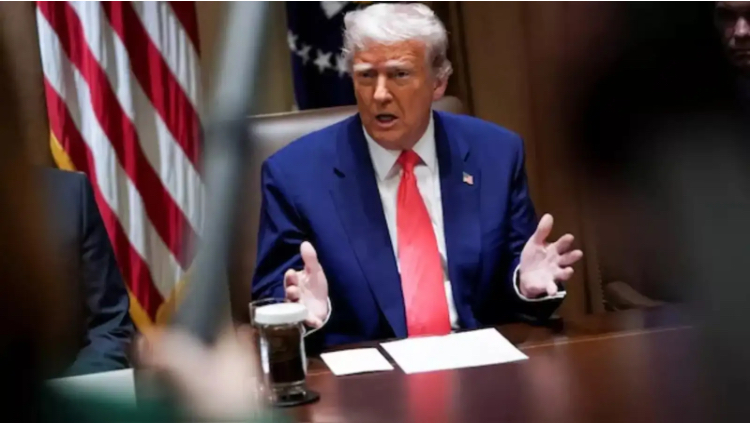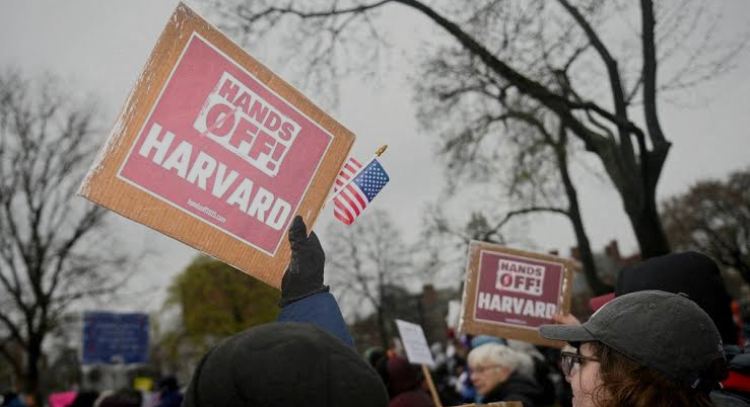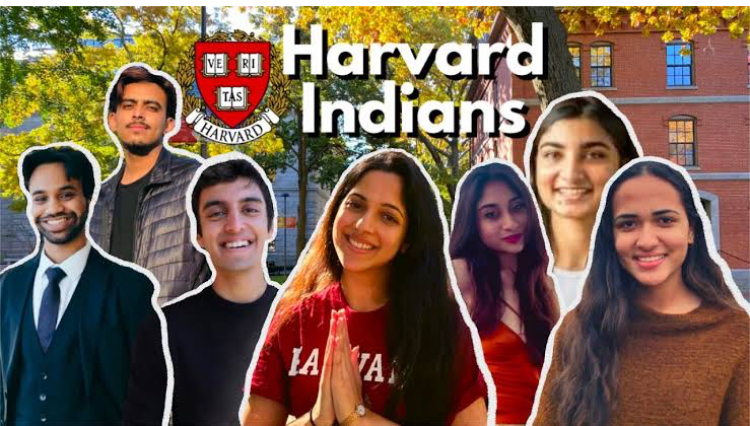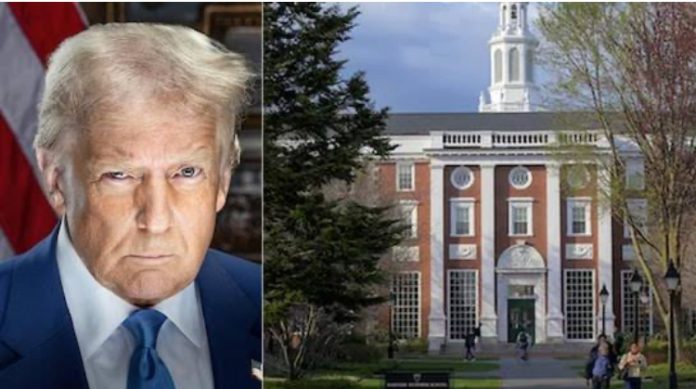The escalating clash between Harvard University and the Donald Trump administration has reached a dramatic phase. On May 23, a U.S. federal judge temporarily blocked the Trump administration from enforcing a policy that would have stripped Harvard of its ability to enroll international students — a move that would have significantly impacted thousands, including many from India.
Harvard had filed an urgent complaint, calling the policy a “blatant violation” of the U.S. Constitution and warning of “devastating consequences” for students, research, and the university's global standing.
Why Is Harvard in Trump's Crosshairs?
At the heart of the dispute is a wider political and cultural battle over alleged antisemitism on U.S. college campuses, especially in the wake of the Israel-Gaza war that intensified after Hamas' October 7, 2023, attack on Israel.
Following campus protests across the U.S. — including at Harvard — critics accused elite universities of not doing enough to combat antisemitism. Harvard faced particular scrutiny after its then-president Claudine Gay's controversial remarks during a Congressional hearing, where she suggested calls for Jewish genocide might not always breach university policy. Though she later apologized, she resigned in December 2023 amid the backlash and a plagiarism controversy.
In January 2025, Trump — newly re-elected as U.S. President — signed an executive order targeting antisemitism on campuses. A federal task force was formed to investigate universities, and Harvard was one of its main targets.

What Actions Has the Trump Administration Taken?
Since early 2025, the Trump administration has launched a series of escalating actions against Harvard:
Feb 2025: The U.S. Justice Department began probing 60 universities, including Harvard, for alleged discrimination against Jewish students.
Mar 2025: After cutting $400 million in funding to Columbia University, the administration reviewed $8.7 billion in Harvard grants and contracts.
Apr 11: The government demanded sweeping reforms from Harvard — including changes to governance, hiring, admissions, and diversity programs.
Apr 15: Harvard President Alan M. Garber rejected the demands, asserting that “no government should control what private universities teach or who they admit.”
Apr 21: Harvard sued the Trump administration, calling the moves a violation of First Amendment rights and accusing it of political retaliation.
Since then, the crackdown has intensified:
May 5: New federal grants were frozen.
May 13: $450 million more in funding was cut.
May 19: $60 million in health research grants were canceled.
May 22: The administration revoked Harvard's certification to enroll new international students — affecting nearly 20% of its student body.
How Does This Affect Indian Students?
Harvard is a top destination for Indian students pursuing undergraduate, postgraduate, and research programs. The U.S. Department of Homeland Security, under Secretary Kristi Noem, officially notified Harvard that its student and exchange visitor certification was canceled, effectively halting the intake of new international students, including those from India.
This development could lead to visa complications, interrupted academic plans, and widespread uncertainty for students already admitted or planning to apply.

What Sparked the Latest Surge?
The situation intensified further after a tragic incident on May 21, when two Israeli diplomats were killed outside a Jewish museum in Washington, D.C. The suspect reportedly shouted “Free Palestine,” fueling accusations that campus protests — like those at Harvard — have contributed to an antisemitic climate.
Israeli officials and some U.S. lawmakers directly linked the protests to rising hate crimes, further pressuring universities and adding momentum to the Trump administration's actions.
What's Next?
As of now, Harvard's lawsuit is ongoing, with over $2.7 billion in funding at stake. The university remains defiant, backed by faculty and alumni — who donated $1.14 million in just two days following the administration's demands.
Yet, with Harvard standing firm and the Trump administration doubling down, the outcome remains uncertain. Other elite institutions are watching closely — and some may soon face similar pressure.

Why It Matters for India?
Thousands of Indian students apply to Harvard every year. If the stand off between U.S. government and universities continues based on political and cultural disputes, it could create a chilling effect on academic freedom and international education.
Indian students — often high achievers in fields like science, business, and law — could face disrupted admissions, visa issues, or a rethink of U.S. education as a preferred path.
Bottom Line:
Harvard's standoff with the Trump administration is more than a campus controversy — it's a high-stakes battle over academic freedom, political power, and the future of international education in the United States. For Indian students, the fallout could be profound.

Ram Kumar Kaushik is a seasoned journalist with over 25 years of experience across mediums. The architect of this news website, he is also a consultant with several media groups. He was formerly the group managing editor of ITV Network (NewsX, India News and The Sunday Guardian) and its digital products.



